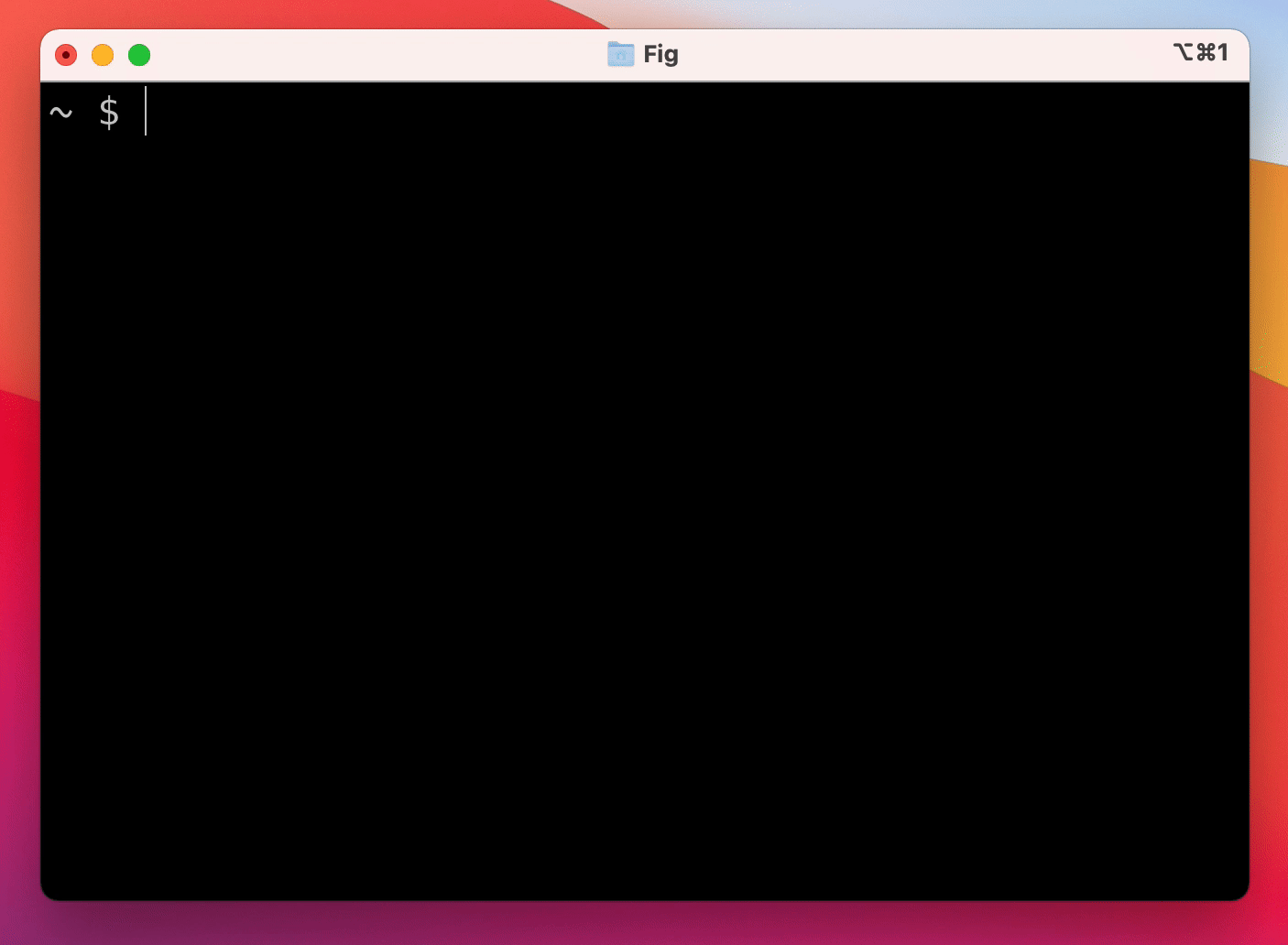Fig makes the command line easier for individuals and more collaborative for teams.
Our most popular product is Autocomplete. As you type, Fig pops up subcommands, options, and contextually relevant arguments in your existing terminal.
- macOS:
- DMG: Download from our website: fig.io
- Homebrew:
brew install fig
- Windows/Linux:
- Join the waitlist
- Remote machines
NOTE: Once it's downloaded, launch the app to set up Fig!
A completion spec is a declarative schema that specifies the subcommands, options and args for a CLI tool. Fig uses these schemas to generate suggestions.
Use the steps below or follow our getting started guide: fig.io/docs
Prerequisites:
- Download Fig for macOS
- Node and NPM (or Yarn)
Steps
-
Click here to fork this repo.
-
Clone your forked repo and create an example spec
# Replace `YOUR_GITHUB_USERNAME` with your own github username git clone https://github.com/YOUR_GITHUB_USERNAME/autocomplete.git fig-autocomplete cd fig-autocomplete # Add withfig/autocomplete as a remote git remote add upstream https://github.com/withfig/autocomplete.git # Install packages npm install # Create an example spec (call it "abc") npm run create-spec abc # Turn on "dev mode" npm run dev
-
Now go to your terminal and type
abc[space]. Your example spec will appear. 😊
- Edit your spec in TypeScript in the
src/folder - On save, specs are compiled to the
build/folder - In dev mode, specs are read from the
buildfolder, and generators run every keystroke.
You can use Fig's autocomplete for your own tools too. Here's how to create private completions:
# Make sure you're in your home directory
cd ~
# Create your .fig/autocomplete folder
npx @withfig/autocomplete-tools init
cd ~/.fig/autocomplete
# Create your completions!
npm run create-spec xyz
npm run publish-spec -p src/xyz.tsYou can also create completions for project scripts, or even add custom suggestions to official specs. Read more at fig.io/docs/guides/private-autocomplete
# Typecheck all specs in the src/ folder
npm test
# Compile typescripts specs from src/ folder to build/ folder
npm run build
# Lint and fix issues
npm run lint:fixWe would love contributions for:
- new completion specs
- errors with existing completion specs (e.g. missing subcommands, options, or arguments)
- generators for argument suggestions
- better descriptions, icons etc
- themes!
If you aren't able to contribute, please feel free to open an issue.
Want to use Fig to add autocomplete internal CLI tools? Or want to use Fig at work but have security / compliance concerns?
We would love to help get you set up. Please email [email protected]
Fig works with the native macOS Terminal app, iTerm, Tabby, Hyper, Kitty, WezTerm, and Alacritty. It also works in the integrated terminals of VSCode, JetBrains IDEs, Android Studio, and Nova.
Want to see another terminal included? Check our issue tracker and add your support for it!
Fig uses the Accessibility API on Mac to position the window, and integrates with your shell to read what you've typed.
Not yet, Fig is only available on macOS for now. Windows and Linux support is in progress!
Run brew install fig or, downloading the app at fig.io/download. Then, launch the Fig app!
Yes! Check out our guide on how to get started building autocomplete specs.
Check out our How to Contribute guide. Many of Fig's 200+ contributors made their first open source contribution to Fig!
Join the Discord server and we'll debug it. Fixing Fig in your setup will fix it for other people too! 🙂
Get in touch at [email protected] or chat with us on Discord.








